第85章
This fact annihilates Mrs. Pott's contention that Bacon introduced 'Good morrow' through the plays falsely attributed to Shakespeare.
There follows, in 'Promus,' a string of proverbs, salutations, and quotations, about sleep and waking. Among these occur 'Golden Sleepe' (No. 1207) and (No. 1215) 'Uprouse. You are up.' Now Friar Laurence says to Romeo:--
But where unbruised youth with unstuffed brain Doth couch his limbs, there GOLDEN SLEEP doth reign:
Therefore thy earliness doth me assure, Thou art UP-ROUSED by some distemperature.
Dr. Abbott writes: 'Mrs. Pott's belief is that the play is indebted for these expressions to the "Promus;" mine is that the "Promus" is borrowed from the play.' And why should either owe anything to the other? The phrase 'Uprouse' or 'Uprose' is familiar in Chaucer, from one of his best-known lines. 'Golden' is a natural poetic adjective of excellence, from Homer to Tennyson. Yet in Dr.
Abbott's opinion 'TWO of these entries constitute a coincidence amounting almost to a demonstration' that either Shakespeare or Bacon borrowed from the other. And this because each writer, one in making notes of commonplaces on sleep, the other in a speech about sleep, uses the regular expression 'Uprouse,' and the poetical commonplace 'Golden sleep' for 'Good rest.' There was no originality in the matter.
We have chosen Dr. Abbott's selected examples of Mrs. Pott's triumphs. Here is another of her parallels. Bacon gives the formula, 'I pray God your early rising does you no hurt.'
Shakespeare writes:--
Go, you cot-quean, go, Get you to bed; faith, you'll be sick to-morrow For this night's watching.
Here Bacon notes a morning salutation, 'I hope you are none the worse for early rising,' while Shakespeare tells somebody not to sit up late. Therefore, and for similar reasons, Bacon is Shakespeare.
We are not surprised to find Mr. Bucke adopting Mrs. Pott's theory of the novelty of 'Good morrow.' He writes in the Christmas number of an illustrated sixpenny magazine, and his article, a really masterly compendium of the whole Baconian delirium, addresses its natural public. But we are amazed to find Dr. Abbott looking not too unkindly on such imbecilities, and marching at least in the direction of Coventry with such a regiment. He is 'on one point a convert' to Mrs. Pott, and that point is the business of 'Good morrow,' 'Uprouse,' and 'Golden sleepe.' It need hardly be added that the intrepid Mr. Donnelly is also a firm adherent of Mrs. Pott.
'Some idea,' he says, 'may be formed of the marvellous industry of this remarkable lady when I state that to prove that we are indebted to Bacon for having enriched the English language, through the plays, with these beautiful courtesies of speech, 'Good morrow,'
'Good day,' etc., she carefully examined SIX THOUSAND WORKS ANTERIOR TO OR CONTEMPORARY WITH BACON.'
Dr. Abbott thought it judicious to 'hedge' about these six thousand works, and await 'the all-knowing dictionary' of Dr. Murray and the Clarendon Press. We have deemed it simpler to go to the first Elizabethan phrase-book on our shelves, and that tiny volume, in its very first phrase, shatters the mare's-nest of Mrs. Pott, Mr.
Donnelly, and Mr. Bucke.
But why, being a great poet, should Bacon conceal the fact, and choose as a mask a man whom, on the hypothesis of his ignorance, every one that knew him must have detected as an impostor? Now, one great author did choose to conceal his identity, though he never shifted the burden of the 'Waverley Novels' on to Terry the actor.
Bacon may, conceivably, have had Scott's pleasure in secrecy, but Bacon selected a mask much more impossible (on the theory) than Terry would have been for Scott. Again, Sir Walter Scott took pains to make his identity certain, by an arrangement with Constable, and by preserving his manuscripts, and he finally confessed. Bacon never confessed, and no documentary traces of his authorship survive. Scott, writing anonymously, quoted his own poems in the novels, an obvious 'blind.' Bacon, less crafty, never (as far as we are aware) mentions Shakespeare.
It is arguable, of course, that to write plays might seem dangerous to Bacon's professional and social position. The reasons which might make a lawyer keep his dramatic works a secret could not apply to 'Lucrece.' A lawyer, of good birth, if he wrote plays at all, would certainly not vamp up old stock pieces. That was the work of a 'Johannes Factotum,' of a 'Shakescene,' as Greene says, of a man who occupied the same position in his theatrical company as Nicholas Nickleby did in that of Mr. Crummles. Nicholas had to bring in the vulgar pony, the Phenomenon, the buckets, and so forth. So, in early years, the author of the plays (Bacon, by the theory) had to work over old pieces. All this is the work of the hack of a playing company; it is not work to which a man in Bacon's position could stoop. Why should he? What had he to gain by patching and vamping?
Certainly not money, if the wealth of Shakespeare is a dark mystery to the Baconian theorists. We are asked to believe that Bacon, for the sake of some five or six pounds, toiled at refashioning old plays, and handed the fair manuscripts to Shakespeare, who passed them off, among the actors who knew him intimately, as his own.
THEY detected no incongruity between the player who was their Johannes Factotum and the plays which he gave in to the manager.
They seemed to be just the kind of work which Shakespeare would be likely to write. BE LIKELY TO WRITE, but 'the father of the rest,'
Mr. Smith, believed that Shakespeare COULD NOT WRITE AT ALL.